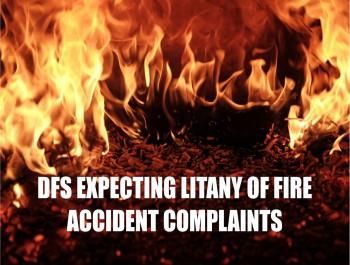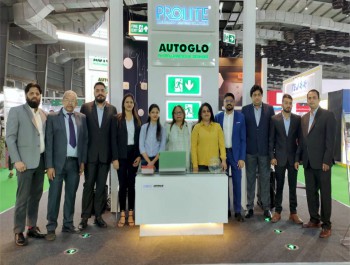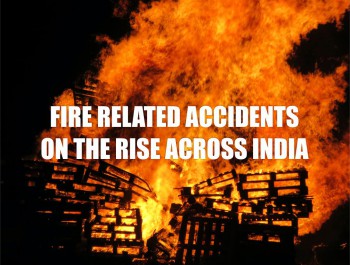
Blog
Safety at oil installations: safety protocols, maintenance and vigilance need to be prioritized
Like any business, the energy business is not one aimed at making profits alone. The country’s energy security is involved and most oil and gas locations store or move hugely inflammable material. In sea transport, there is also risk of oil spillage in addition to loss of life and property. So are we vigilant enough?
When looking back at history and calculating potential and real profits and losses, the one biggest demotivating factor remains the recurrence of accidents that wipe out years of hard work and claim human lives as well. So how important really is the sprucing up of safety measures and protocols across the country’s oil chain from Upstream, midstream and downstream segments?
Sometimes, the obvious proves the most elusive. It can be no one’s argument that safety of sensitive and flammable locations- be it upstream installations, pipelines, freight carriers or refineries- must be paramount and highest up on the priority lists of the government and the companies involved this has not happened and is still not happening.
In the most recent instance, five people were killed and 7 injured in a fire incident onboard an oil rig of ONGC undergoing repairs at Cochin Shipyard. The explosion followed a gas leakage near the AC compartment area of the ship. The ship Sagar Bhushan arrived at Cochin Shipyard on Dec 7, 2017 for drydock repairs. It was drydocked on January 12 2018 and it was to be undocked Feb 28. The work completion was scheduled by April 7.
“Firemen on board the ship immediately sprung to action and the fire tender joined with them for the fire fighting from the Aft area. Two firemen with BA sets immediately rushed into the smoke filled area and started fire fighting and rescue operations. Others continued firefighting from the forward hatch and reached to the incident spot,” said the shipyard operator in a statement.
Shocked by the unfortunate blast at Cochin Shipyard where four people have died. My heartfelt condolences to bereaved families. I have spoken to MD, Cochin Shipyard and asked him to provide all necessary medical support to (the) victims and to initiate immediate inquiry with the help of concerned agencies," said Union Shipping and Transport Minister Nitin Gadkari in a tweet soon after.
The moot point here must be could that blast have been prevented? Are there no periodic maintenance protocols in place to detect gas leaks and take action before it is too late as in this case? Also, are there efforts made not to keep potentially inflammable material in close proximity of areas or items that have the potential to trigger leaks or fires? Even if these rules are in place are they observed properly at all times?
Two people died in a fire at the catalyst storage site in IOC’s Panipat oil refinery, in India’s state of Odisha on the country’s northeastern coast, early January. Refinery units were fortunately not hit by fire, and the 300,000 barrel per day refinery and naphtha cracker were operating at full capacity at the time.
On Dec. 12, 2017 a fire broke out again in a major processing unit of Indian Oil’s 15 million-tonne/year full-conversion refinery at Paradip. Earlier, IOC, which controls 11 of India’s 23 refineries, imported its first 2 million-bbl cargo of US high-sulfur Mars crude oil from South Louisiana for delivery to and processing at the Paradip refinery as part of a plan to diversify its crude sources and help boost the country’s energy security.
Indian Oil Corp had to shut the fluidised catalytic cracking unit (FCCU) at its Paradip refinery, a company spokesman had said. FCCU was shut after the fire broke out at a nearby facility at about 1100 hours local time. The east coast refinery has a capacity of 300,000 barrels per day.
Therefore, it is perhaps time to spruce up fire protocols and fix responsibility to ensure that these accidents are kept down to their lowest levels. Its all about setting priorities and walking the safety talk at all times with maximum vigilance. Surely its not too much to ask given the stakes involved.
Email : sales@prolite.in





